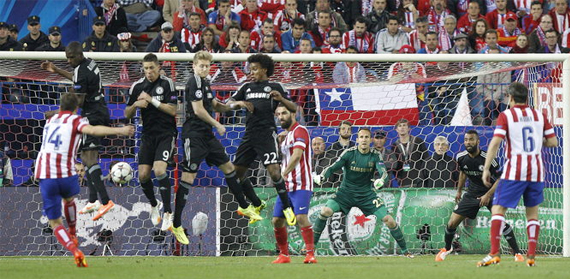By Simon Chadwick, Coventry University
There is a scene during the film Pulp Fiction in which Vincent Vega (John Travolta) recounts his experiences of eating at McDonalds in France to his fellow partner in crime, Jules Winnfield (Samuel L. Jackson). Vega revels in telling an enthralled Winnfield that a “Quarter-Pounder with Cheese” is known there as a “Royale with Cheese”. Winnfield is rather less impressed though upon finding out from Vega that a “Big Mac” in France is simply referred to as “Big Mac”.
And therein lay a fundamental message about the 21st century delivery and consumption of many products: homogeneity, consistency, standardisation. Walk into a McDonald’s (or, for that matter, a Starbucks, KFC or Burger King) anywhere in the world, and you know what you are going to get, even though the product name might be slightly different. While critics inevitably denounce our consumption habits as overly sanitised, for many people loyalty to a familiar brand is simply a safe and trustworthy way to consume a product.
In several sports, we are heading towards the “business end” of the season when trophies are won and lost, and promotions and relegations are decided. For most fans this is an incredible time of year, laced with either anticipation and excitement or fear and loathing, or possibly a combination of both.
This is the antithesis of a trip to McDonald’s: there is minimal certainty in sport at this time of year, when teams and clubs are fighting for their futures. There is no standardisation, every game is different, sometimes starkly so; there is no homogeneity – as TV coverage on the final day of a season switches from one game to another it is always clear that every contest is completely different. And that is why sport can be so incredible to fans, so painful for diehards, so attractive to commercial partners and so compelling for the media.
Yet our relationship with sport raises some interesting issues about how people consume things. We might live in a Big Mac world where we seek certainty and security, but in sport it seems we do not. While some products might make us unhappy, few are likely to make us cry in the same way some people do when they watch sport. Or consider anger and aggression – when buying bread or opening a bank account, few of us will perceive the need to shout or fight. Yet in sport, sometimes people do exactly this.
The kind of sporting uncertainty that many of us are currently dealing with has an awful lot to answer for, leading us to think and behave in unusual or irrational ways. Research in both sport economics and sport marketing strongly emphasises the importance of equal competition, which enables the uncertain outcome associated with sporting contests to be optimised.
Conventional wisdom says uncertainty is necessary for sport to exist, that it is vital to its health, and that fans crave uncertainty. Indeed, research findings support such an observation – fans prefer not to know the result of a game: it is what motivates them to watch, attend and engage. This is why a season’s end is such an evocative time of year in any sporting calendar.
Contrary to this view however, some analysts argue that fans do not actually like uncertainty, nor do they want an uncertain outcome to games involving the teams they support.
This implies that those preoccupied with uncertainty and matters of competitive balance might well be somewhat misplaced in their concern for equality within sporting competitions. Indeed, closer inspection of the evidence reveals a subtle distinction between fans who simply do not want uncertainty (they want their team to win every time), and fans who seek uncertainty of outcome and the excitement and tension this brings – but only so long as their team wins in the end.
Clearly, there is a social, cultural and political context to such behaviour: sports fans are not necessarily rational in the way some researchers portray them as being. Instead, when their team wins, this says something about them, the town they are from, or their home region and what it stands for. Their team might stand for old-fashioned values, or for the emergence of a new era in a sport. A team may also represent a particular set of political values, a win for the team thus constituting a public proclamation of ideology.
Uncertainty is therefore not simply a sporting issue, nor for that matter an economic one. Our relationship with it is deeper than that, and it involves our self-identify: our birth-right, lifestyle, heritage, family ties and more.
The first time I watched Pulp Fiction the outcome was uncertain, the film’s plot having twisted and turned like a relegation six pointer. On second watching, Pulp Fiction was still great: brilliant performances and a tight script, but this time entirely predictable.
The final few games of any season always bring the kind of tension and drama that Tarantino and his crew could only bring us once. Given that we are now well into April and season’s end is nigh, sports fans would do well to reflect upon and possibly reappraise their relationship with uncertainty. Do you want your sport standardised and pre-packaged, or are you willing to accept the pain when it is your team that gets relegated?
![]()
Simon Chadwick does not work for, consult to, own shares in or receive funding from any company or organisation that would benefit from this article, and has no relevant affiliations.
This article was originally published on The Conversation.
Read the original article.




Comments are disabled